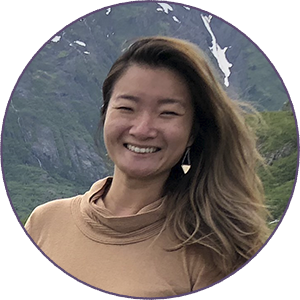As a six year old, Dr. Yuan Xing began her pursuit of dance, unknowingly setting the stage for an unexpected life trajectory. Most of us who take dance classes as kids, however, don’t end up becoming a dance instructor – and even fewer become neurologists specializing in movement disorders with the ability to incorporate their passion for dance into an innovative way to benefit patients.
“I think both [medicine and dance] actually help each other in an interesting way. As a physician treating patients with movement disorders we’re looking at tremors, we’re looking at difficulty with movement; we’re looking at what’s wrong and what’s changed with their movement. Really that’s the same thing that I do when I teach dance,” she says.
Even during the intensive and time-consuming training that’s required for a medical degree, Dr. Xing continued her study of dance, and discovered that she loved a style called Brazilian zouk, a partner dance similar to Salsa or Bachata. She’s found more time to do this since completing her fellowship – locum tenens has allowed her to continue down this path, and she’s had the ability to not only hold but participate in dance congresses across the U.S. and even abroad.
“I teach locally in my city and then also in this last year have been starting to travel more nationally to teach this dance,” she says. “They’re called dance congresses, but basically they’re conferences for the dance community where everyone comes together to learn with instructors from all over the world.”
Living her dream, with the flexibility of locum tenens
Dr. Xing feels locums has allowed her the ability to earn an excellent income practicing medicine, without the schedule restrictions that comes with a permanent position.
“Since I’ve been doing locums I’ve traveled to Poland and Holland for events,” she shares. “Certainly all of these things I would definitely not have been able to do around my schedule, or at least would have had to sacrifice a big chunk of it had I been in a permanent position where you only get three weeks of vacation a year. Each dance congress, especially if they’re international, can take from two to three weeks.”
Not only does her love of dance bring her great joy, it gives her a greater level of empathy for her Parkinson’s patients, which has opened up an avenue for a unique way to treat its symptoms. This led her to a group called Dance for PD®, a program started 17 years ago as a collaboration between an academic center in New York City and a professional dance company in order to find a more creative way to help people with movement issues. The program allows people with Parkinson’s to experience the joys and benefits of dance while creatively addressing symptom-specific concerns related to balance, cognition, motor skill, depression, and physical confidence.
“They adapt different dance styles and pieces into movements that someone can do in a seated position. Their tactic is really cool because they don’t call it physical therapy and they don’t call the patients patients, they just call them dancers,” she shares. “By having them do these really big movements, it helps them not only physically, it just makes them feel great mentally, psychologically, and spiritually as well, which is awesome.”
“It’s sort of melding my two passions,” she continues. “I love taking care of my patients, but I’m very passionate about dance and movement and the positive things that dance movement can bring to people, so being able to meld the two can hopefully allow me to build a program incorporating both.”

The benefits of working in various practice settings
Hailing from Austin, Texas, and then going to medical school in Houston and residency in Dallas, Dr. Xing was more accustomed to larger metropolitan areas. Even so, she chose to take her first locums assignment in Waterville, Maine, a city with a population of 20,000.
“I was practicing rural medicine. I was working in a stand-alone clinic in a small hospital with only two MAs and an office manager. I loved it,” she says. “It was great to see how a practice model worked in that way because it was something I had never been exposed to before.”
Working in a small-town clinic challenged her in an unexpected way, because she was forced to handle most everything in-house, especially since specialists weren’t as easily accessible for patient referrals.
If and when Dr. Xing decides to take a permanent position, she has found that locum tenens has given her the building blocks to make her successful in any practice setting she may find herself, in any facility or location, big and small.
“Ultimately if you do settle down in a practice, it’s great having seen how different practice models work and seeing what would be the best fit for you versus committing to something without having seen the world and how different things can function in medicine,” she says. “Even aside from seeing different aspects of medicine, from someone who loves to travel and see different things, locum tenens is a great excuse to go to different places.”



